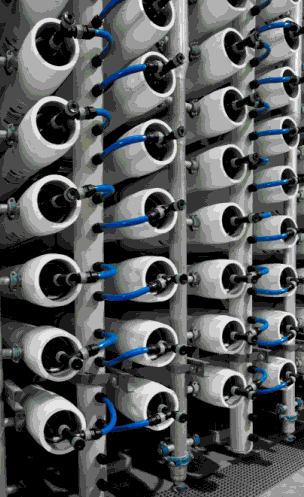New SA desal coming
 The South Australian government has announced moves to solve a water crisis on the Eyre Peninsula.
The South Australian government has announced moves to solve a water crisis on the Eyre Peninsula.
The state has approved the construction of a $330 million desalination plant at Billy Lights Point in an effort to secure the region’s water supply amid concerns over declining groundwater levels.
“We are very, very finely placed and running out of water would be a catastrophe for farmers, for the fishing industry and for citizens,” said Housing and Urban Development Minister Nick Champion.
“We don’t want to be playing chicken with Mother Nature.”
Currently, 75 per cent of the Eyre Peninsula’s drinking water is sourced from its groundwater basins, which serve approximately 35,000 residents.
However, these resources are under significant strain. Rising salinity and reduced water levels have prompted a review of water allocation plans, potentially curbing the amount extractable by SA Water from mid-2026.
The desalination plant, expected to be operational by mid-2026, will provide a climate-independent water source.
Using trenchless construction methods, intake and outfall pipes will be positioned up to a kilometre offshore to mitigate environmental impact on marine ecosystems.
The government says this approach reflects modifications based on community feedback, aiming to address environmental and social concerns.
Investigations into 15 potential sites over several years culminated in the selection of Billy Lights Point as the preferred location due to its cost efficiency and fewer logistical challenges compared to alternatives like Sleaford West.
The State Commission Assessment Panel recommended the project, and 22 conditions were set for its approval.
These include preparing comprehensive stormwater and bushfire management plans and ensuring that designs align with local council and engineering standards.
The government has also pledged ongoing dialogue with stakeholders, including local councils and industry groups.
Despite these efforts, opposition persists. Critics, including some local community members and traditional owners, argue that the project lacks social licence.
A parliamentary select committee has called for alternative water supply options and greater transparency in project planning.
The committee’s report calls on the state government to acknowledge that mismanagement of water supplies “has led to the current crisis”, to acknowledge that “social license does not exist within the community for the proposed desalination plant”, to ensure that Eyre Peninsula water supply projects “have transparent, comprehensive and independent scientific assessment completed” and urgently commit “to the investigation of alternate water supply projects”.
Fishers and environmental advocates remain particularly concerned about potential impacts on marine life.
Meanwhile, SA Water has introduced a water security response plan, currently at level two, reflecting a precarious balance between supply and demand.
To encourage conservation, rebates for water-efficient appliances will be available to residents from next month.
“Replacing old appliances and fixtures can make a real difference in reducing our everyday water usage, and every drop counts when it comes to securing the region’s drinking water supply,” said SA Water’s David Coombe.








 Print
Print